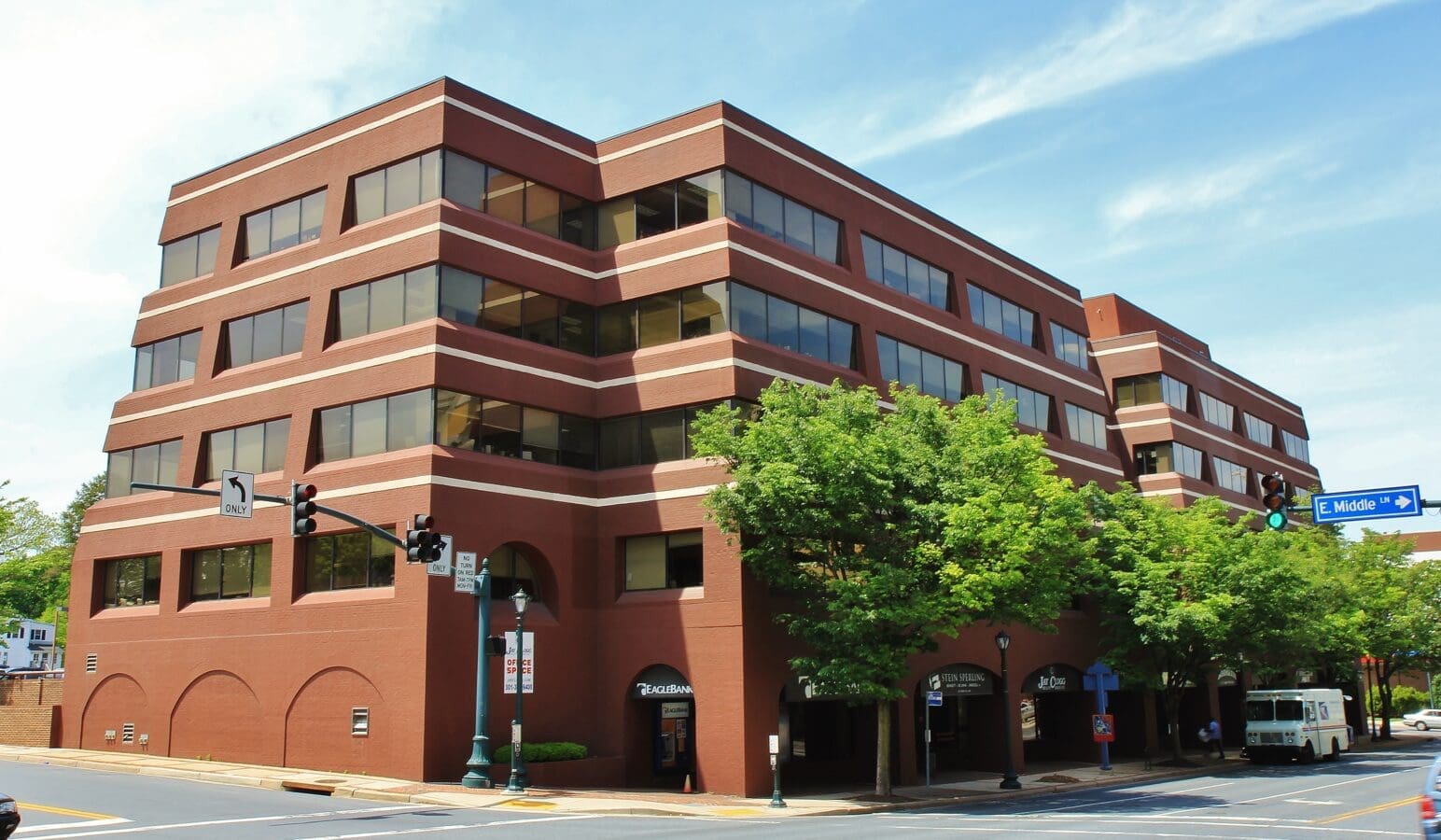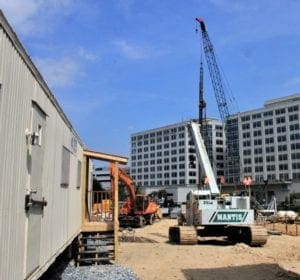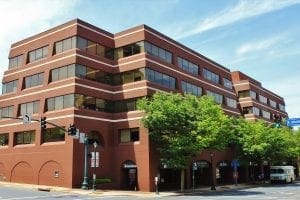
Maryland Condominium Disputes & Lawsuits
Legal disputes and lawsuits related to Maryland condominium property rights can become a serious concern for condominium owners, sellers, buyers, and renters. Examples of Maryland condominium disputes include condominium/property line disputes (such as quiet title/adverse possession, easements issues, and border disputes), common elements disputes, liability disputes (such as trespass, tree dangers, and damage), and specific condominium ownership disputes (such as probate disputes and contract disputes). Generally, Maryland condominium disputes are very specific, and these disagreements can include various types of law.
Maryland Condominium Property Line Disputes
Maryland condominium property line disputes often emanate from property-based disagreements between adjoining condo neighbors about shared condominium boundaries or common elements boundaries. Many of these neighbor condominium line disputes in Maryland result from a lack of realization regarding the accurate and true property lines between condominiums. Sometimes these types of Maryland condominium dispute stem from construction disputes. Often, adjoining Maryland condominium owners/occupiers assume the validity of a visual property condominium line (such as a condo wall, fence, or landscaping, such as trees) that are actually inaccurate according to the true Maryland property records. These Maryland condominium disputes can arise between condominium neighbors that have lived for years with differing understandings related to the true condominiums’ boundary line. In many cases, legal action can be used to enforce the accurate Maryland condominium boundary lines in Maryland Circuit Court System (such as the Montgomery County Circuit Court in Rockville).

Additionally, in Maryland, a condominium owner or renter can sometimes assert the doctrine of adverse possession and quiet title to attempt to obtain legal ownership of part of a condominium titled real estate due to that their use and possession of that section of property as their own for 20 years. In Maryland, an action for adverse possession regarding a condominium is the legal action where an individual who is not the actual owner of a condominium (1) can use to obtain a true title to that particular condominium, common element, or any property by the passage of 20 years through their own possession of that particular real estate, condominium, or common elements over time and/or (2) become immune from a repossession lawsuit initiated by the original Maryland condominium or property owner. Often Maryland condominium adverse possession matters involve condominium border disputes between owners of neighboring condominiums or common elements. A Maryland property dispute attorney can assist condominium owners with properly addressing these types of condominium problems. Neighbor property line disputes can also simply result from border disagreements, regardless of the presence of adverse possession regarding the condominium. Often the placement of fences and the circumstances surrounding condominium borders between condominiums (including common elements concerns) can cause legal disputes between condominium neighbors. In fact, Maryland even contains certain legal restrictions on the building of any aspects of condominium on or near property lines as well as near common elements. In addition, trees that are located on or near a Maryland condominium property line can present certain legal problems. Maryland condominium owners can have the right to bring a lawsuit or defend themselves in litigation related to dying or damaged condominium trees which have fallen onto their own Maryland condominium. In fact, often condominium disputes become Maryland condominium adverse possession disputes.
Maryland Condominium Ownership Disputes
Maryland condominium ownership dispute generally emanate from issues concerning either contracts related to condominium ownership or the bequeath of condominium ownership rights to different parties. In Maryland, to enter into a contract for the transfer of Maryland real property (including condominiums), the agreement must be in writing. Despite this seemingly legal requirement, many property disputes or common elements disputes are the result of contracts to transfer title of a real estate, common elements, condo or property to another party. These Maryland property ownership disputes or common elements disputes are often addressed in the Maryland Circuit Court (such as the Montgomery County Circuit Court in Rockville, MD). Similarly, parties in Maryland often condominium disputes which individuals are the legal owner of a condominium after a property owner has died. In these types of Maryland condominium ownership disputes, the parties often will litigate the intent of the decedent regarding the ownership of their property interest following the party’s passing. These specific Maryland condominium dispute are generally disputed within the Maryland Orphan’s Court or the Maryland Circuit Court.
Maryland Condominium Property Liability Disputes
 Maryland condominium property liability disputes are generally the result of either (1) condominium damage resulting from item within a property causing damage on a neighboring condos or (2) condominium damage as a result of a trespass onto the condominium. Maryland condominiums can be damaged by the weather or merely through the passage of time. When damage occurs in Maryland, trees and other condominium structures can cause serious damage onto neighboring condominiums. As a result, legal liability can exist against a condominium’s owner for that damage. Nonetheless, legal liability for condominium damage or common elements damage is not easy to assess in these situations. Many different facts can lead to different legal results in Maryland condominium lawsuits related to liability. Maryland has passed (and interpreted) specific legal guidelines for assessing such condominium liability or common elements liability. Condominium owners must also be concerned with damage that can occur to Maryland condominium guests or trespassers onto their Maryland condominium. The Maryland Circuit Court (such as the Montgomery County Circuit Court in Rockville) can assess liability in certain circumstances when a condo guest is injured on a Maryland condominium owner’s property. A Maryland condominium dispute attorney can help Maryland condominium owners navigate through these difficult legal property issues.
Maryland condominium property liability disputes are generally the result of either (1) condominium damage resulting from item within a property causing damage on a neighboring condos or (2) condominium damage as a result of a trespass onto the condominium. Maryland condominiums can be damaged by the weather or merely through the passage of time. When damage occurs in Maryland, trees and other condominium structures can cause serious damage onto neighboring condominiums. As a result, legal liability can exist against a condominium’s owner for that damage. Nonetheless, legal liability for condominium damage or common elements damage is not easy to assess in these situations. Many different facts can lead to different legal results in Maryland condominium lawsuits related to liability. Maryland has passed (and interpreted) specific legal guidelines for assessing such condominium liability or common elements liability. Condominium owners must also be concerned with damage that can occur to Maryland condominium guests or trespassers onto their Maryland condominium. The Maryland Circuit Court (such as the Montgomery County Circuit Court in Rockville) can assess liability in certain circumstances when a condo guest is injured on a Maryland condominium owner’s property. A Maryland condominium dispute attorney can help Maryland condominium owners navigate through these difficult legal property issues.
Adam Van Grack and Longman & VaGrack’s other litigation condominium attorneys regularly handle different types Maryland condominium property lawsuits, common elements disputes, condominium adverse possession, tree disputes, lis pendens problems, and condominium tree damage lawsuits. If you would like to discuss a Maryland property dispute matter, common elements disputes, or condominium lawsuit with Mr. Van Grack or another Maryland condominium dispute attorney, call (301) 291-7156 today to schedule a consultation at our Maryland Offices: Rockville, MD or Bethesda, MD.
